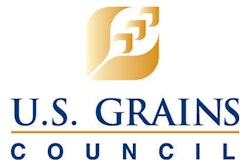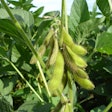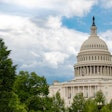The National Grain and Feed Association (NGFA) and North American Export Grain Association (NAEGA) this week submitted a joint statement to the U.S. Trade Representative's Office and U.S. Department of Commerce emphasizing U.S. food and agriculture's contribution to the U.S. economy and importance of trade to and from the United States.
The comments were submitted May 10 in response to a request for input to inform the U.S. Trade Representative and Secretary of Commerce in their preparation of an Omnibus Report on Significant Trade Deficits for President Donald Trump.
"The U.S. food and agriculture experience is one of generating significant trade surpluses that have benefited the U.S. balance of trade, job creation and economic growth," said the NGFA and NAEGA in their statement.
The organizations cited data from the U.S. Department of Commerce, as well as analyses conducted by the U.S. Department of Agriculture, showing that the food and agriculture sector supports more than 15 million U.S. jobs, creates more than $423 billion in annual U.S. economic activity, and represents the single largest U.S. manufacturing sector - constituting 12 percent of all U.S. manufacturing jobs. Every dollar in U.S. agricultural exports generates an additional $1.27 in U.S. economic activity, they noted.
The comments also outlined key areas that would preserve and enhance U.S. agricultural competitiveness. Specifically, the NGFA and NAEGA cited the need to:
- maintain and expand market access and tariff concessions;
- improve regulatory coherence and cooperation, including by implementing enhanced science-based sanitary and phytosanitary rules;
- remove non-tariff barriers that lack scientific merit;
- increase transparency and cooperation in approving modern agricultural production technologies, including seed-breeding innovations;
- more closely align standards; and
- enable innovation of information technologies to improve implementation of logistics and regulatory systems.
"While we understand the need to examine the underlying causes of trade deficits to various sectors of the U.S. economy, it also remains essential that the United States continue to recognize the economic principle of comparative advantage and the benefits that two-way trade contribute to advancing U.S. and world economic well-being and global security," the comments stated. "For example, within the agricultural space, imports of farm inputs, such as fertilizer, may lower U.S. production costs and enable U.S. food and agricultural exports to remain competitive."
The NGFA and NAEGA said they are eager to assist the Trump administration in identifying "opportunities to update and modernize existing U.S. trade agreements and relationships with other countries - and to initiate new agreements, particularly with Asia-Pacific countries - while preserving the core benefits that have helped the U.S. food and agriculture sector support U.S. economic growth and job creation."
Separately, the organizations noted that they are eager to work with newly confirmed U.S. Trade Representative Robert Lighthizer in his central role in developing and coordinating U.S. international trade policy and leading trade negotiations with other countries.

















